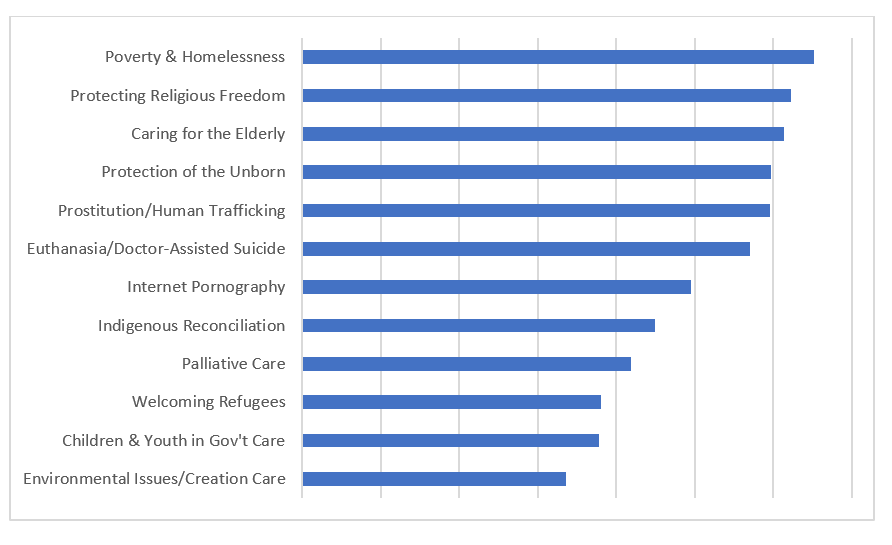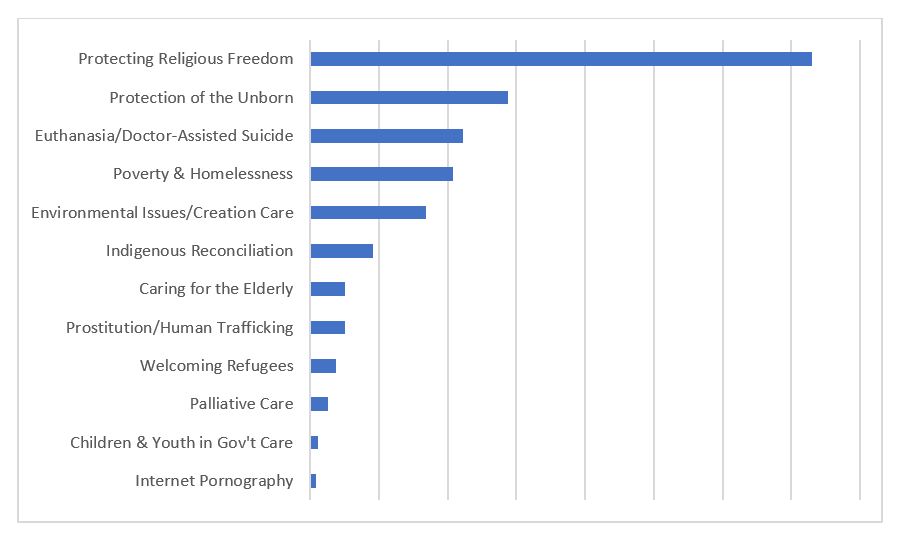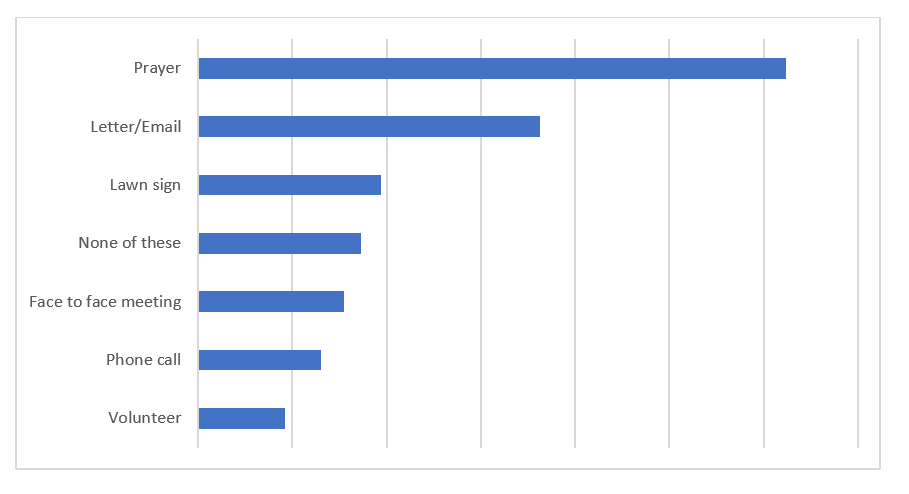On a Saturday morning the week before the federal election, several EFC staff hopped on an unplanned Zoom meeting to discuss the comments popping up in response to a Facebook ad campaign the EFC was running.
Like the average Canadian Christian organization, the EFC is moderately active on social media such as Facebook and Twitter, where we often share news and resources. We attempt to contribute positively and be a constructive presence in what can be contentious platforms full of disagreement and debate.
What we were seeing unfold in front of us that Saturday morning was anything but positive, and some of us were worried. The EFC had dipped our toes into what we now realized were very turbulent waters of social media advertising.
Our ads were floating out there, far beyond the safe harbours of our normal audience, inviting people to participate in a short poll about what social issues were of concern to them as Christian voters. They could also download our
EFC Election Kit, completely non-partisan of course, which offered insights into what churches could and could not do during a campaign and some sample questions to ask candidates about issues of concern.
The poll results were interesting (and some are noted below). They gave us a glimpse of the thinking of those who took the time to rank issues and answer our simple questions on that day. But it was the comments on the actual ads themselves that had us clutching our coffee cups in consternation.
For the most part, the comments were extremely negative, ridiculing Christians about their beliefs and criticizing any participation in politics by people of faith. We decided to hide some of the worst comments that were deeply partisan, because we didn’t want to risk someone associating those thoughts with the EFC. Others we left because we know that’s just the nature of the social media world. Opinions vary. Passions run high. A thick skin is required. Moderating comments on ads making their way through Facebook felt a little bit like chasing the wind.
But, we also don’t like to waste lesson-learning opportunities, so here’s what we gleaned from the comments (almost as revealing as the poll results):
- Evangelicals are not popular in this cultural moment;
- some people don’t think religious people should be involved in politics at all;
- the faith community probably needs to do a better job of telling its stories of contributing to the public good;
- and lastly, name-calling and vitriol is never helpful. It shuts down conversation instead of opening it up.
Now, for the results. We had 479 respondents to our informal Facebook poll which ran from Sept. 13—19. Poverty and homelessness were named the top issue of concern by the most respondents, followed closely by religious freedom and then caring for the elderly. Protection of the unborn, often assumed to be the top issue for evangelical Christians, ranked fourth in our completely unscientific Facebook poll.
What social issues are of concern to you?
(Check all that apply.)

When the question was reframed as “What is the
most important issue for you as a Christian?” the top issue was religious freedom, with internet pornography ranked as the least important among the dozen options they had to choose from.
The most important issue for you as a Christian voter.

The EFC often encourages citizens to interact with their Members of Parliament, and we asked people how they most often did that. Prayer was the top answer, volunteering the last.
Types of MP engagement participated or will
participate in. (Check all that apply)

Our experiment on Facebook revealed some interesting insights to us and introduced the EFC to a wider audience. Some of them were happy to meet us, and others not so much. It was a good reminder to us of what is at the heart of our mission, and that is to bless Canadians, whether they like us or not.
Have you ever heard of the EFC?

How important is it to you to have a strong voice for Evangelicals speaking into the issues of today?

All poll results are from 479 responses to informal survey from external Facebook ads (Sep 13–19, 2021). Emoji photo by Domingo Alvarez E from Unsplash.